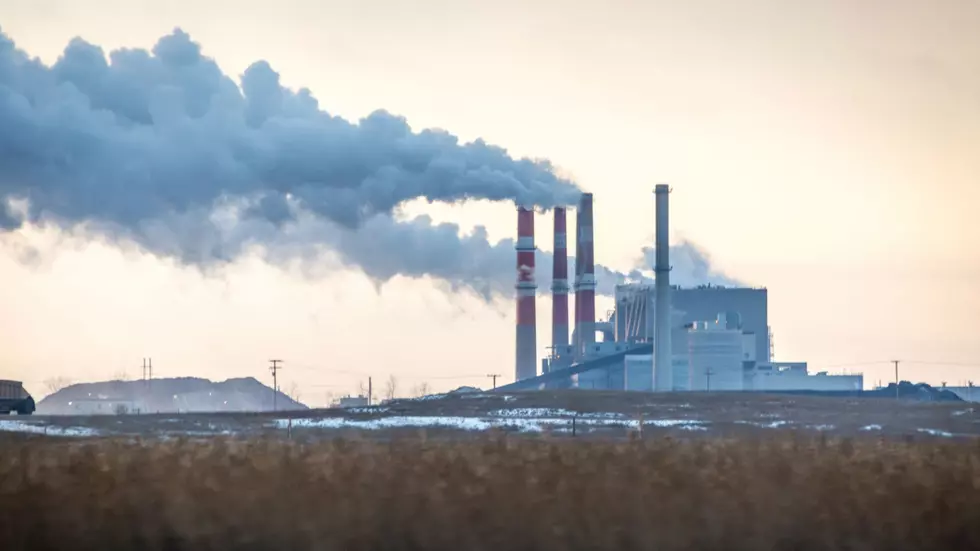
These Are The Bloodiest Nations That North Dakota Invests In
There has been uproar over the last few years regarding North Dakota's Legacy Fund investments, with your dollars going to significant human rights violators.

A handful of the landing places have found their way onto the Human Rights Watch List as some of the world's most egregious violators. While not all the nations that North Dakota has invested in are turning a profit for the state in such horrific ways, the 11 listed below are among some of the worst in the world.
KX News previously published a breakdown of who controls the finances of the legacy fund.
To the state's credit, there has been some movement to divest from these companies; however, with the nature of the investments, it would be nearly impossible to do so without taking significant financial losses.
Here are the top offenders that return money to North Dakota, stained the most crimson.
Niger
In Niger's west and southeast, armed Islamist organizations, such as Boko Haram and organizations connected to the Islamic State in the Greater Sahara (ISGS), have increased their activities.
Nigerien security forces have been linked to grave violations of civilian rights and have shown a variable respect for human rights in reaction to their attacks.
Venezuela
Three crises are currently plaguing Venezuela: the humanitarian crisis, the enormous departure of Venezuelans, and the repression of opposition. Opponents, journalists, human rights advocates, and civil society organizations are all subject to persecution and criminal prosecution by the authorities.
High-ranking officials might be aware of crimes against humanity that the UN Fact-Finding Mission and the International Criminal Court are documenting. The lack of independence and complicity in the abuses by the Venezuelan judiciary have led to impunity for these crimes.
There is a serious humanitarian crisis in Venezuela, where seven million people are in need of aid. Many people lack access to sufficient nutrition and basic medical care. One of the biggest migration problems in the world has resulted from the more than 7 million Venezuelans who have left their nation.
Columbia
The Revolutionary Armed Forces of Colombia (FARC) and the government signed a peace agreement in 2016, formally ending the decades-long armed conflict. The National Liberation Army (ELN) guerrillas, which split from the FARC and are the descendants of paramilitary groups that emerged following an official demobilization process more than ten years ago, are still engaging in grave abuses.
Leaders of Indigenous and Afro-Colombian communities, rights advocates, and other community activists frequently endure threats and acts of violence. Millions of people have been forcibly displaced due to armed conflict-related violence, and there is still great worry about serious abuses going unpunished.
Between 2019 and 2021, police responded to primarily nonviolent protests with excessive and frequently brutal force. High rates of poverty continue to be a major human rights problem, particularly for communities of Indigenous and Afro-descendant people.
Mexico
After being elected president in 2018, Andrés Manuel López Obrador has not addressed the alarmingly high rates of disappearances, cartel criminality, and homicide. He has significantly increased the military's influence in public life, sending out close to 150,000 soldiers to police civilian laws, among other things.
In an unprecedented attempt to stem irregular migration, he has also sent roughly 30,000 troops around the nation to block migrants' entry into the US. This has occasionally resulted in violent incidents when soldiers have killed or injured migrants.
Police, prosecutors, the military, and criminal organizations frequently commit serious and widespread human rights violations, such as arbitrary detention, torture, extrajudicial killings, enforced disappearances, abuses against migrants, and attacks on journalists and human rights advocates. Seldom, if at all, are these offenses looked into or prosecuted.
Sri Lanka
The country's economic crisis, which jeopardizes the living standards of millions of people, and the impunity for security force atrocities seriously endanger human rights in Sri Lanka. In 2002, protests forced the prime minister and president to resign.
But since entering office, Ranil Wickremesinghe, the current president, has continued to instruct security forces to put an end to further protests and to obstruct accountability for crimes related to the 26-year armed conflict that came to an end in 2009. The UN Human Rights Council has reaffirmed and strengthened the mandate for the UN to gather and examine evidence of transnational crimes in preparation for upcoming prosecutions.
The harsh Prevention of Terrorism Act is still in effect despite numerous pledges to have it repealed, which encourages abuse and exposes human rights defenders and victims of previous atrocities to intimidation and monitoring.
Qatar
Qatar has implemented notable labor changes, such as a higher and nondiscriminatory minimum wage and the ability for migrant workers to change jobs without employer consent. Nevertheless, the changes are not well implemented and have proven to be dreadfully insufficient in defending the rights of employees.
Exorbitant recruitment costs and salary abuses are still issues for migrant workers. The families of deceased migrant workers frequently do not obtain compensation from employers, and migrant worker deaths are rarely probed.
The FIFA World Cup 2022 finished without providing compensation to anyone, including the families of the migrant workers who lost their lives making the tournament possible, despite the attention the tournament received worldwide and the demands placed on FIFA and the Qatari authorities to address grave mistreatment of migrant workers.
There are still laws that discriminate against women and enforce male guardianship. People who identify as LGBT (lesbian, gay, bisexual, and transgender) nevertheless experience prejudice.
Kuwait
Kuwaiti authorities continue to censor speech and punish dissidents using the national security law, the cybercrime law, and the constitution's prohibitions, with a focus on remarks made on social media.
The kafala (sponsorship) system in Kuwait is in need of change, as migrant workers are at risk of mistreatment and forced labor. Stateless individuals claiming Kuwaiti nationality, known as the Bidun, are caught in a legal limbo while the government uses force and criminalizes nonviolent grassroots movements.
Brazil
Following a political violence-tainted campaign, President Luiz Inácio Lula da Silva took office in January 2023. Not long after, throngs of ex-president Jair Bolsonaro's followers stormed the Supreme Court, Congress, and the Presidential Palace, chanting for a coup.
The Amazon rainforest is reaching a tipping point that it might not be able to recover from due to rapid deforestation and fires. Forest guardians deal with violence and threats. The high number of police killings continues to have a disproportionately negative impact on black Brazilians.
Due to extreme overcrowding in many prisons, inmates are more susceptible to violence and gang recruitment. Gender-based violence is still a persistent issue.
Saudi Arabia
To hide its dismal human rights record, Saudi Arabia spends billions of dollars staging big entertainment, cultural, and athletic events. Saudi Arabia has made significant reform announcements, but the suppression of independent civil society and divergent viewpoints hinder any attempt at change.
Many dissidents and human rights advocates are imprisoned or facing legal action as a result of their nonviolent criticism. High-ranking officials were not held responsible by the authorities for the 2018 murder of Saudi writer Jamal Khashoggi.
The coalition in Yemen that Saudi Arabia and the United Arab Emirates are leading has carried out illegal bombings that have killed and injured thousands of civilians.
Russia
Following its full-scale invasion of Ukraine in 2022, Russian forces have engaged in a long list of wrongdoings, some of which ought to be looked into as possible war crimes or crimes against humanity.
The invasion also signaled the beginning of a new, full-scale campaign in Russia to crush popular resistance. In an apparent attempt to silence public opposition to the war, any criticism of the government, or any expression of social nonconformism, Russian authorities doubled down on their relentless attack against free speech, civic activism, independent journalism, and political dissent through new laws and other measures.
Any criticism of Russia's assault on Ukraine or challenging official narrative and state propaganda is illegal under new war censorship regulations. Russia experienced significant population emigration as a result of the conflict and the mass mobilization that followed.
Prominent opposition political figures are incarcerated or assassinated, as are an increasing number of opponents of the government and the war.
China
The Chinese Communist Party and President Xi Jinping, who began an extraordinary third term in 2022, are in charge of China's authoritarian government, which routinely suppresses fundamental rights.
The government has increased control over the media, the internet, and civil society while also arbitrarily detaining human rights advocates. Invasion-level mass surveillance technology has also been used. Particularly harsh government control is exercised in Tibet and Xinjiang.
Since 2017, when they persecuted Uyghurs and other Turkic Muslims and arbitrarily detained one million of them, the authorities have committed crimes against humanity. In 2020, the government of Hong Kong implemented strict national security laws and gradually reduced the citizens' liberties.
The government suppressed critics overseas, weakened international human rights organizations, and obstructed attempts by other countries to look into the origins of COVID-19. In late 2022, people in China and the diaspora protested for democracy and human rights in China.
Modern Minnesota Mega-Mansion For Sale
Gallery Credit: Lauren Wells
Shortest Rock Star Marriages
Gallery Credit: Philip Trapp
More From KEYZ AM 660









